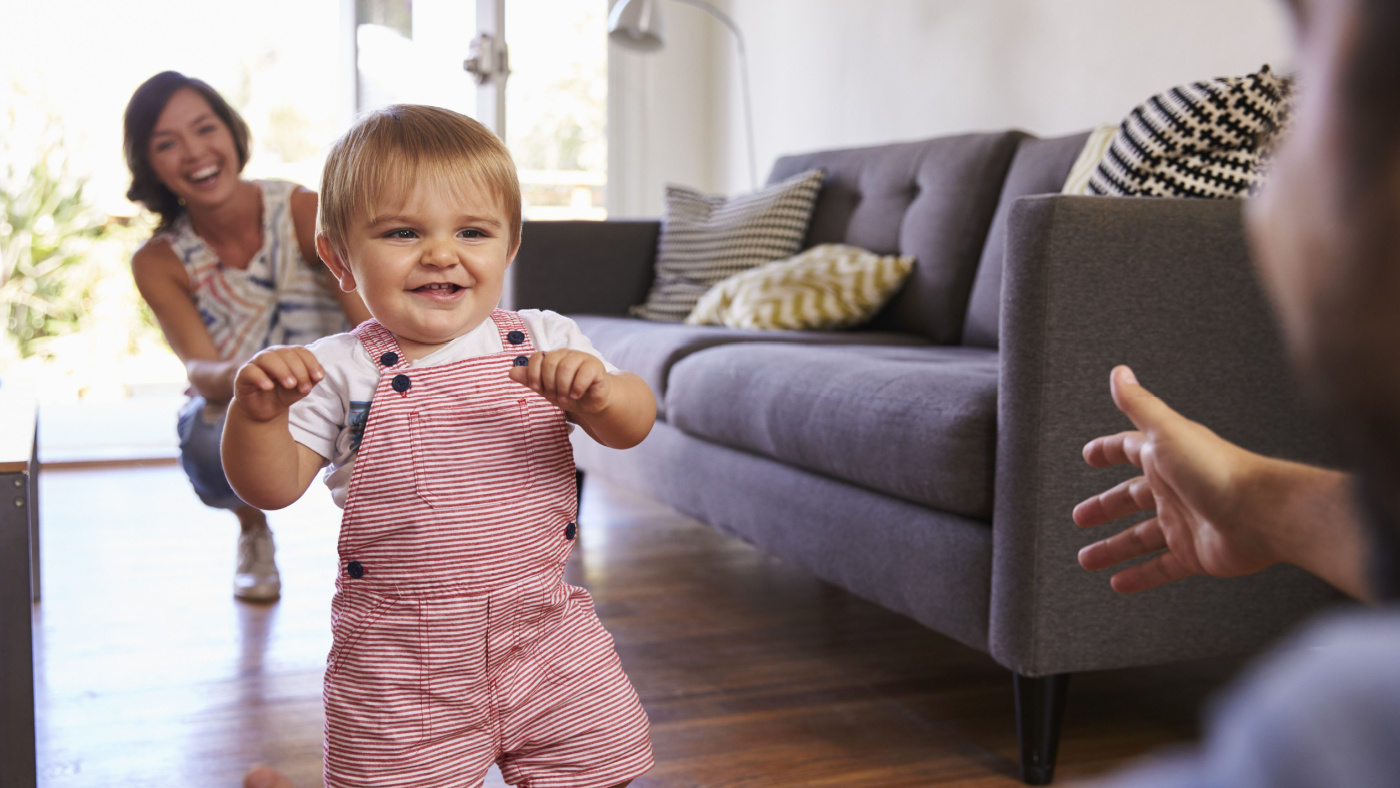When should my baby walk?

“Are they walking yet?” is surely a contender for the most frequently asked question as your baby approaches their first birthday.
Or, if your baby walks early, you may hear “Are they walking already?” (asked in an incredulous tone, possibly followed by a look of sympathy), or else “Are they still not walking?”.
We are, it seems, slightly obsessed with this most visible of the ‘big’ milestones. Waiting for your child to walk can feel a bit like it must have felt to watch Neil Armstrong taking his first step on the moon – one giant leap for your baby, coming up any time between roughly 9 and 18 months!
If you are a My First Five Years app user, you might know by now that these big milestone moments are the culmination of many smaller steps. Walking isn’t a skill in isolation that babies suddenly master out of the blue. There are many, many important aspects of development that come together when a child starts to walk, and if you have the knowledge to spot them (our app is great for this!), those well-meaning questions become much easier to deal with.
Skills linked to walking
Gross motor development is important for walking, but it also involves cognitive development, sensory development and fine motor development.
Your baby's cognitive development supports them to think about and plan movements. It’s amazing to think about how many cognitive and physical skills your baby needs to be able to think, “To get to that toy I need to take a step”. Then, once they can walk, they can use their hands to touch things, opening up new possibilities for exploring objects, which supports their cognitive skills.
Their gross motor development allows them to gain strength in and control of their muscles, while fine motor skills are crucial as the toes are fundamental to balance (yes, fine motor applies to toes, too!). Sensory development brings together information from touch, sight, touch, balance and their body awareness (proprioception) to think about how to move.
When will my child walk?
No two children will share the same journey to walking, even in the same family! There is debate as to how much of development is due to genetics, and how much is down to experience.
It’s thought that physical development is a mixture. What this means is that when your child walks is influenced by experiences and genetics.[1] Children are likely to walk around the same age their parents did, assuming they have the chance to move, so a parent who walked early is likely to have a child who walks early, but it’s not 100% guaranteed!
As long as your baby gets lots of time to move, and experience being in different positions (which is important because these experiences help them strengthen their core muscles), you don’t need to feel you should try other things to get them to walk sooner.
Your baby’s physical growth and development
Another important thing to think about in physical development is that babies’ bones and muscles are developing too.
Babies' bones begin to harden toward the end of pregnancy and continue to harden until puberty. This means that however developed their muscles and nervous system are, they can’t stand if their leg bones are too soft.[2]
Babies' muscles contain a high proportion of fat. Changes in muscle composition in the first year or so of life leads to increased strength, which means they can walk, run, climb, et cetera. [2]
Think about your child, not a milestone
Most children walk between 9 and 18 months, but that’s a long time to spend looking out for a milestone! This is one of the reasons why My First Five Years breaks down your child’s development into all of the smaller steps that lead to the milestones you usually hear about – there is so much more that goes into walking than that first step alone!
Our app will give you all the information you need to track your child’s development across all areas, so you can rest assured that your child is on their own path to mastering these skills, meaning you can relax and enjoy parenting more. Check it out at My First Five Years on the App Store (apple.com)
References
[1] Thelen, E. (1995). Motor development: A new synthesis. American Psychologist, 50, 79-95.
[2] Boyd, D. & Bee, H. (2019). Lifespan Development (8th edn,) Pearson.